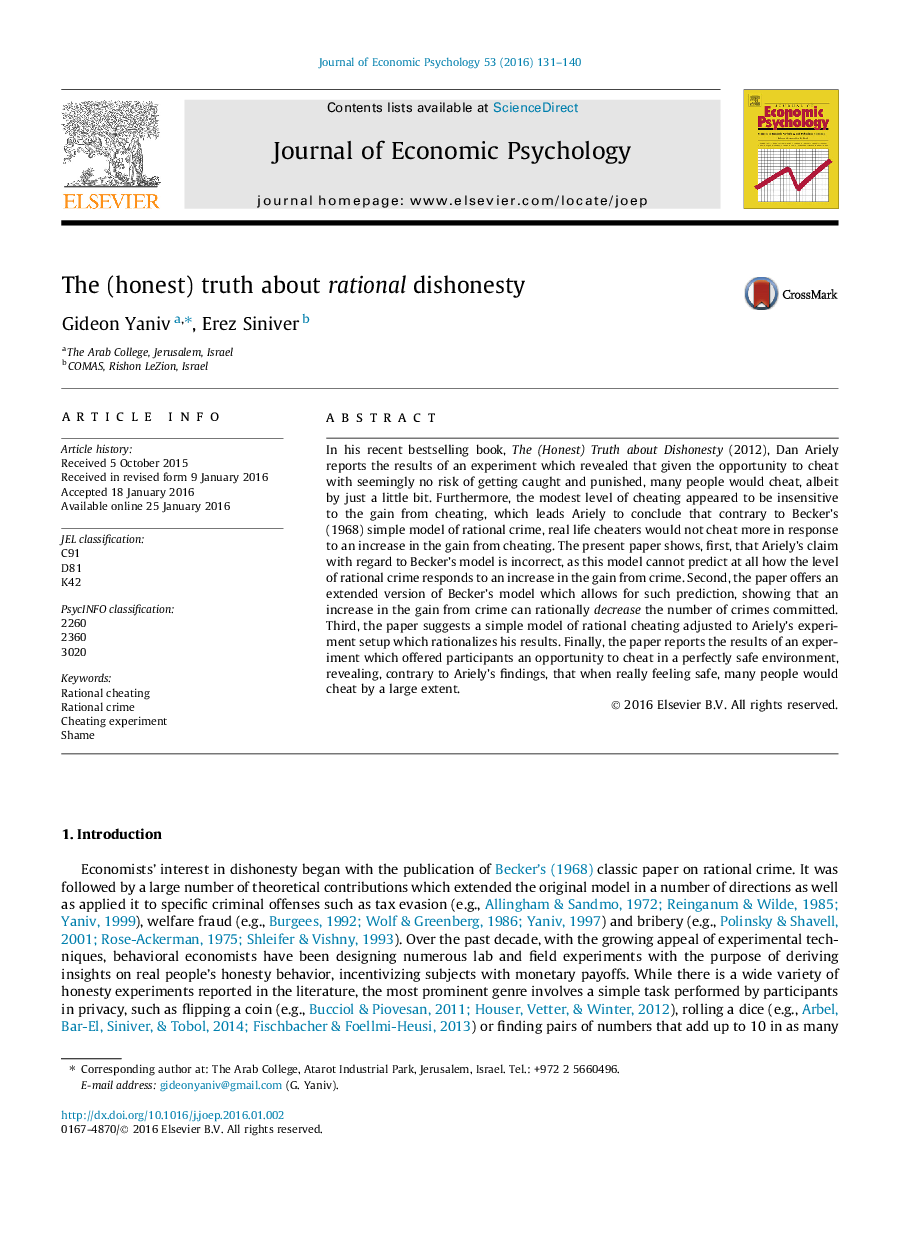| کد مقاله | کد نشریه | سال انتشار | مقاله انگلیسی | نسخه تمام متن |
|---|---|---|---|---|
| 7244428 | 1471713 | 2016 | 10 صفحه PDF | دانلود رایگان |
عنوان انگلیسی مقاله ISI
The (honest) truth about rational dishonesty
ترجمه فارسی عنوان
حقیقت (صادق) در مورد ناسازمانی عقلانی
دانلود مقاله + سفارش ترجمه
دانلود مقاله ISI انگلیسی
رایگان برای ایرانیان
موضوعات مرتبط
علوم انسانی و اجتماعی
مدیریت، کسب و کار و حسابداری
بازاریابی و مدیریت بازار
چکیده انگلیسی
In his recent bestselling book, The (Honest) Truth about Dishonesty (2012), Dan Ariely reports the results of an experiment which revealed that given the opportunity to cheat with seemingly no risk of getting caught and punished, many people would cheat, albeit by just a little bit. Furthermore, the modest level of cheating appeared to be insensitive to the gain from cheating, which leads Ariely to conclude that contrary to Becker's (1968) simple model of rational crime, real life cheaters would not cheat more in response to an increase in the gain from cheating. The present paper shows, first, that Ariely's claim with regard to Becker's model is incorrect, as this model cannot predict at all how the level of rational crime responds to an increase in the gain from crime. Second, the paper offers an extended version of Becker's model which allows for such prediction, showing that an increase in the gain from crime can rationally decrease the number of crimes committed. Third, the paper suggests a simple model of rational cheating adjusted to Ariely's experiment setup which rationalizes his results. Finally, the paper reports the results of an experiment which offered participants an opportunity to cheat in a perfectly safe environment, revealing, contrary to Ariely's findings, that when really feeling safe, many people would cheat by a large extent.
ناشر
Database: Elsevier - ScienceDirect (ساینس دایرکت)
Journal: Journal of Economic Psychology - Volume 53, April 2016, Pages 131-140
Journal: Journal of Economic Psychology - Volume 53, April 2016, Pages 131-140
نویسندگان
Gideon Yaniv, Erez Siniver,
